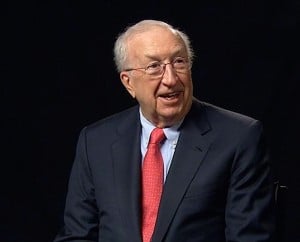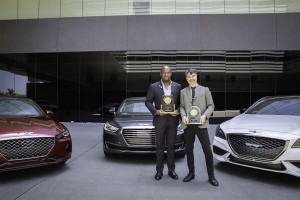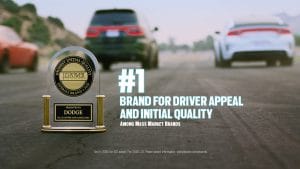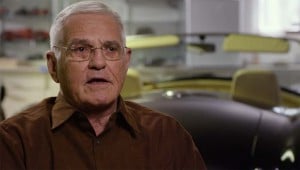
Revolutions often have humble origins. In the case of James David Power III, it started more than half a century ago at his kitchen table, where the former Ford financial analyst pored over consumer surveys with his late wife Julie. In a moment of insight, Power realized that the rotary engines then being used by Mazda were failing catastrophically and in large numbers.
It was one of many revelations that Power teased out of the data, perhaps the most important being that Detroit automakers were paying far too little attention to quality problems that would soon provide a major opening for upstart Japanese brands like Toyota, Nissan and Honda. That became the foundation for a new research and consulting firm that would quickly become one of the industry’s most powerful voices, J.D. Power and Associates.
Dave Power, who would continue to run the family business for nearly four decades, passed away on Saturday at the age of 89 at his home in Westlake Village, California.
(First time out, Genesis tops Power Dependability Study as Nissan Leaf scores a coup.)

“I truly believe that he did more to improve quality and customer service in the auto industry than any person in history,” said Dave Sargent, the head of automotive research for what is now known simply as J.D. Power. “Anyone who owns a vehicle has benefited from his genius,” added Sargent in a Facebook post marking the passing of the company founder.
Today, the Power name is widely recognized in a variety of industries, the California-based company measuring quality and customer satisfaction in fields as diverse as health care and telecommunications. It has even counted space agency NASA as one of its clients. But it is clearly best known for its work in the automotive industry.
Car buyers and car manufacturers alike closely follow the results of annual reports, such as the Initial Quality Survey and Customer Satisfaction Index, that track “problems” and measure how well consumers are being served. Automakers also invest heavily in the company’s proprietary studies, looking for problems and hoping to find new opportunities.
But Dave Power was just another cog in the corporate enterprise when he started out, serving initially as a financial analyst at Ford and later handling marketing research for General Motors. He decided to strike out on his own, forming J.D. Power and Associates in 1968, mortgaging the family home to raise capital.

“I became disillusioned with market research in the auto industry,” Power told me in a 1999 interview. “I found that engineers felt they knew more about how cars should be built than anyone else and didn’t really want to listen to consumers. As a result, market research was twisted to the point it reflected what they wanted to hear. They would torture the data until it confessed.”
Power discovered a number of things in those early years, notably how customers were growing increasingly disillusioned with both the quality of the vehicles they were buying from Detroit as well as the poor service they received when they did have problems.
That provided a potential opening for Japanese manufacturers like Toyota, the new company’s first client. Toyota had itself failed when it first entered the U.S. market in the 1950s with disastrously bad products like the Toyopet. It needed a way to reach American consumers as it set out to try again, and delivering great quality would become as much the key as would the great mileage its products offered in the wake of the twin oil shocks of the 1970s.
(Porsche, Dodge named most “APEAL”-ing brands in new JD Power study.)

Not all Japanese brands were living up to high quality standards however. Mazda was betting on the new Wankel rotary as an alternative to the time-tested piston engine. But, sitting at the kitchen table, Julie Power started realizing that a significant share of those engines were failing, often after less than 40,000 miles. The research wound up in a Wall Street Journal story and helped launch J.D. Power and Associates out of obscurity.
During the next few years, the company founder would launch the first of his syndicated studies, providing a clinically efficient means of comparing how well manufacturers were doing.
Not everyone was pleased to have the heat turned up and, as Crain’s Detroit Business pointed out in a retrospective, Dave Power was booed and heckled during a 1980 industry conference. But even though the industry didn’t always like what it heard, “He created a measurable standard,” Bob Lutz, one-time president of Chrysler Corp. and later General Motors’ “car czar,” said in a 1996 interview with Business Week. “For that, he deserves our utmost respect.”
Dave Power was not shy about predicting the future when it came to the auto industry. “Not all his ideas were successful but most were,” said Sargent, who started with the company in 1992.
As much as automakers had to change to meet customer expectations, Power saw great need for change on the retail side of the business. “The battleground will shift to the dealership and the way a company interfaces with the customer,”

he told me in our 1999 interview. And, today, retailers as far afield as Hyundai, Mercedes-Benz and Lincoln are making major efforts to redesign their sales and service practices.
Dave Power sold his company in 2005 to McGraw Hill. He remained a consultant for a couple years before going into full retirement – though he continued to be a familiar sight at industry events, such as the Los Angeles Auto Show, until just a few years ago.
For its part, J.D. Power was sold again in July 2019 to equity firm Thoma Bravo, which also operates Autodata Solutions.
Born in Worcester, Massachusetts on May 30, 1931, Dave Power received numerous accolades during his nearly nine decades, including the Lone Sailor Award presented to Navy veterans who subsequently went on to significant careers. Power spent four years in the Coast Guard before starting out in the auto industry.
(In stunning turnaround, Dodge shoots to #1 in 2020 J.D. Power Initial Quality Study.)
And in 2014, more than 30 years after being booed at that industry conference, Power was inducted into the Automotive Hall of Fame, alongside such industry giants as Henry Ford, Soichiro Honda and Walter P. Chrysler. He was honored for his “legendary path as the mind behind the analytical approach to customer satisfaction — which is now the industry standard.”







